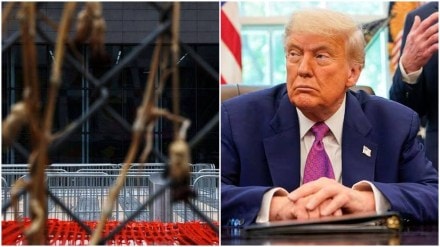A federal appeals court on Saturday declined to clear the way for U.S. President Donald Trump’s administration to expand a fast-track deportation process to allow for the expedited removal of migrants who are living far away from the border. A 2-1 panel of the U.S. Court of Appeals for the District of Columbia Circuit declined to put on hold the central part of a ruling by a lower-court judge who had found that the administration’s policies violated the due process rights of migrants who could be apprehended anywhere in the U.S.
Judge blocks DHS fast track removal policy
U.S. District Judge Jia Cobb in an Aug. 29 ruling sided with an immigrant rights group and blocked the U.S. Department of Homeland Security from enforcing policies that exposed migrants to the risk of rapid expulsion if the administration believed they had been in the country for less than two years.
The administration asked the D.C. Circuit to stay that ruling while it appealed.
But U.S. Circuit Judges Patricia Millett and J. Michelle Childs said the administration was unlikely to succeed in showing its systems and procedures adequately protected migrants’ due process rights under the U.S. Constitution’s Fifth Amendment.
The judges, both appointees of Democratic presidents, cited “serious risks of erroneous summary removal” posed by the administration’s effort to expand the fast-track deportation process away from the borders to cover the entire U.S.
While the court largely left Cobb’s order in place, it stayed part of it to the extent it required changes to how immigration authorities determine if someone has a credible fear of being sent back to his or her country of origin.
U.S. Circuit Judge Neomi Rao, a Trump appointee, dissented and called Cobb’s ruling “impermissible judicial interference.”
DHS is silent as appeals heads to court on December 9
The department did not immediately respond to a request for comment. The administration’s appeal on the merits is scheduled to be heard on December 9.
For nearly three decades, the expedited removal process has been used to quickly return migrants apprehended at the border. In January, the administration expanded its scope to cover non-citizens apprehended anywhere in the U.S. who could not show they had been in the country for two years.
The policy mirrored one the Trump administration adopted in 2019 that Democratic President Joe Biden’s administration later rescinded. The Trump policy also was challenged by the immigrant rights advocacy group Make the Road New York.
